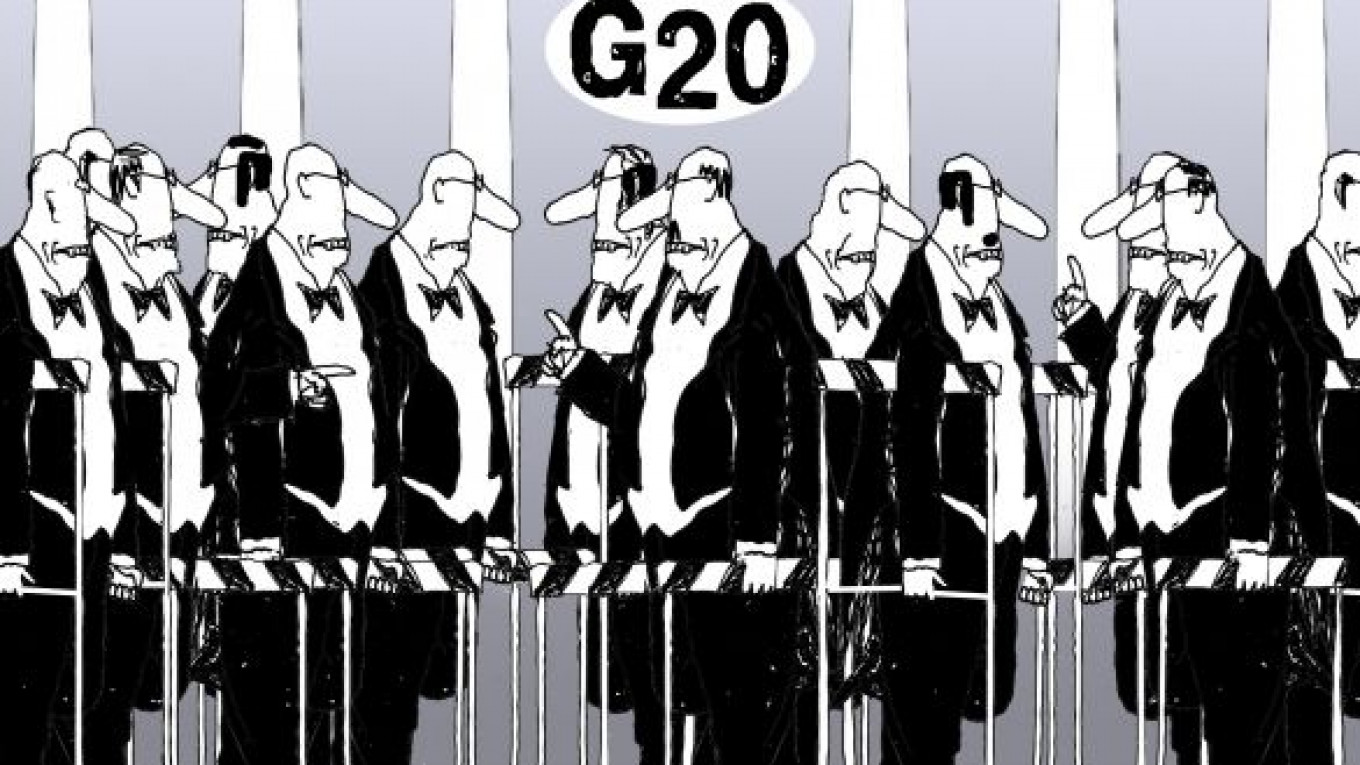The world’s economies are becoming more interdependent than ever, but economic nationalism, protectionism and beggar-thy-neighbor attitudes are threatening the bonds of trust and cooperation that a truly globalized economy requires.
To prevent another recession or worse, the leaders of the 20 wealthiest nations must take aggressive action Thursday and Friday at the semi-annual Group of 20 summit in Seoul to develop a broad agenda for more balanced, equitable and sustainable global growth — and to oversee its strict implementation.
Five principles should guide their thinking:
- First, although differences on trade and economic policy must be addressed, shortsighted self-interest must be countered actively. Excessive surpluses in some countries and excessive debt in others — fueled by undervalued currencies and runaway government spending, respectively — must be curbed. Countries must commit to not withhold exports of key natural resources for political reasons, and to doing all they can to maintain and promote open markets based on principles of reciprocity and long-term sustainability.
To make this happen, all major players must remain committed to free trade within the context of a fair and equitable global system, and they must communicate this commitment respectfully, forcefully and repeatedly to their own publics. The two most significant global trading powers in particular — the United States and China — must fight tendencies in their own countries to raise hidden barriers or take inappropriate retaliatory action designed to placate domestic public opinion. All economies must address the domestic dislocations that can accompany the freeing up of markets.
- Second, much stronger efforts must be made to move forward with multilateral trade agreements, particularly by completing the Doha Round of trade negotiations. Although the proliferation of bilateral trade agreements around the world is a positive development, the global economy will suffer enormously if these deals end up coming at the expense of comprehensive agreements, which can do exponentially more to foster global growth.
- Third, in the context of an increasingly interdependent global economy, all countries’ monetary and fiscal policies must be better coordinated. The G20 must do far more to harmonize economic and trade policies across countries and continents to catalyze global growth. Unnecessary barriers to cross-border capital flows and direct cross-border investment must be eliminated as economies become stronger.
Likewise, we must move far more quickly toward market-driven currency valuations around the world — and toward addressing the massive indebtedness of many developed countries. The G20 can also play a stronger role in enhancing the skills of regulators in a globally interconnected environment, and should develop a mutually agreed regulatory framework for evolving financial markets.
- Fourth, far more must to be done to unlock the tremendous human and economic potential of the world’s 1.4 billion people living in dire poverty and without meaningful opportunity. Nine million children die each year before reaching their fifth birthday; 69 million school-age children are not in school; 884 million people have no access to safe drinking water; and 2.6 billion lack access to basic sanitation.
Educating and empowering poor and disadvantaged groups around the world, including women, is not only a moral imperative, it is also one of the best investments in long-term, sustainable growth that world leaders can possibly make. G20 nations must take the lead in making this happen.
- Fifth, innovation must be promoted as a long-term generator of growth. This requires encouraging more effective investments in education and research and development, increasing intellectual property protections and promoting new international collaborative efforts to help address common challenges in energy, environmental protection, health care and other areas.
The Oct. 23 statement of principles released by G20 finance ministers makes many of the right noises on some of these issues. But the ministers’ words will ring hollow if, as with similar statements made at prior G20 summits in London and Toronto, member states do not translate them into action.
With the United States less able to play the leading role in managing the world economy, in some ways responsibility has now shifted to the G20 to set a course of collaboration and coordination that can guide global economic growth for the 21st century.
If G20 leaders fail to accept that responsibility and instead choose the path of economic nationalism, the future could look bleak.
Jamie Metzl, a member of former U.S. President Bill Clinton’s National Security Council, is executive vice president of the Asia Society. Zachary Karabell is president of RiverTwice Research. © Project Syndicate
A Message from The Moscow Times:
Dear readers,
We are facing unprecedented challenges. Russia's Prosecutor General's Office has designated The Moscow Times as an "undesirable" organization, criminalizing our work and putting our staff at risk of prosecution. This follows our earlier unjust labeling as a "foreign agent."
These actions are direct attempts to silence independent journalism in Russia. The authorities claim our work "discredits the decisions of the Russian leadership." We see things differently: we strive to provide accurate, unbiased reporting on Russia.
We, the journalists of The Moscow Times, refuse to be silenced. But to continue our work, we need your help.
Your support, no matter how small, makes a world of difference. If you can, please support us monthly starting from just $2. It's quick to set up, and every contribution makes a significant impact.
By supporting The Moscow Times, you're defending open, independent journalism in the face of repression. Thank you for standing with us.
Remind me later.






